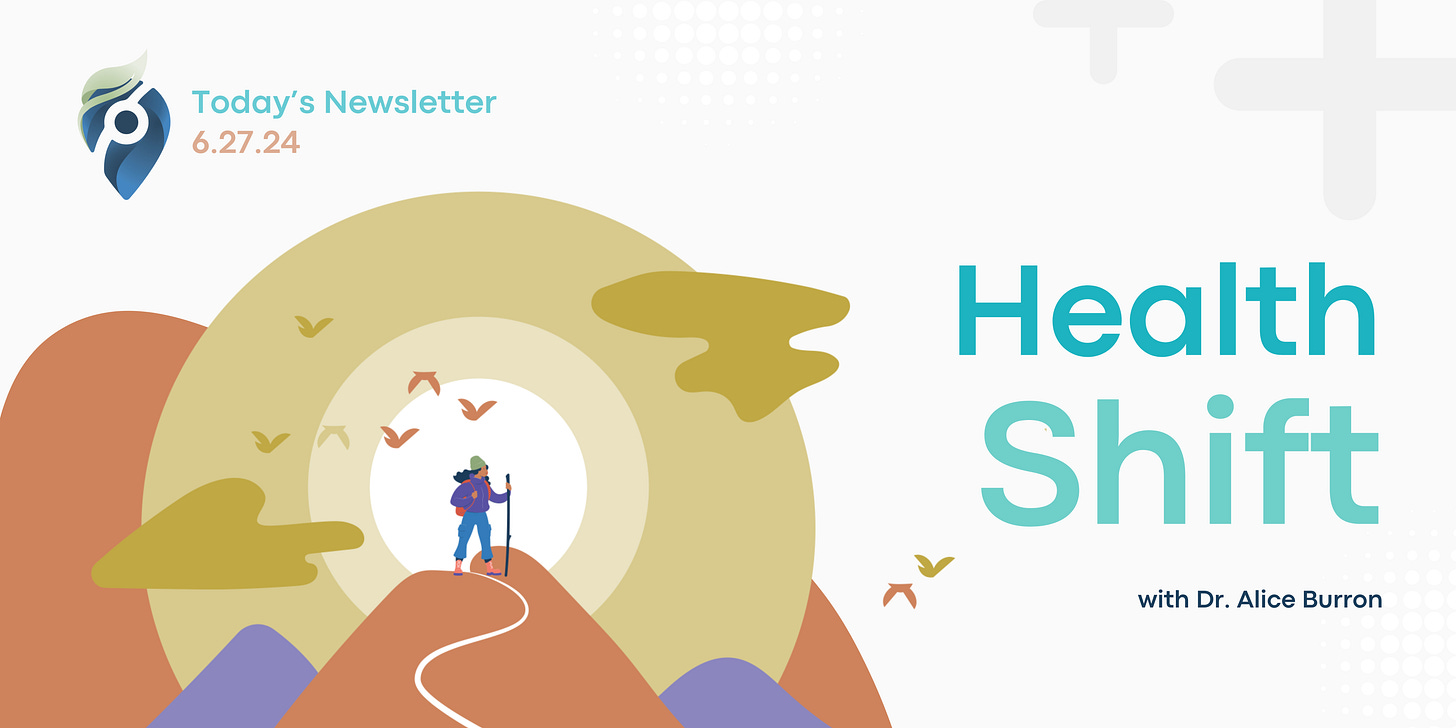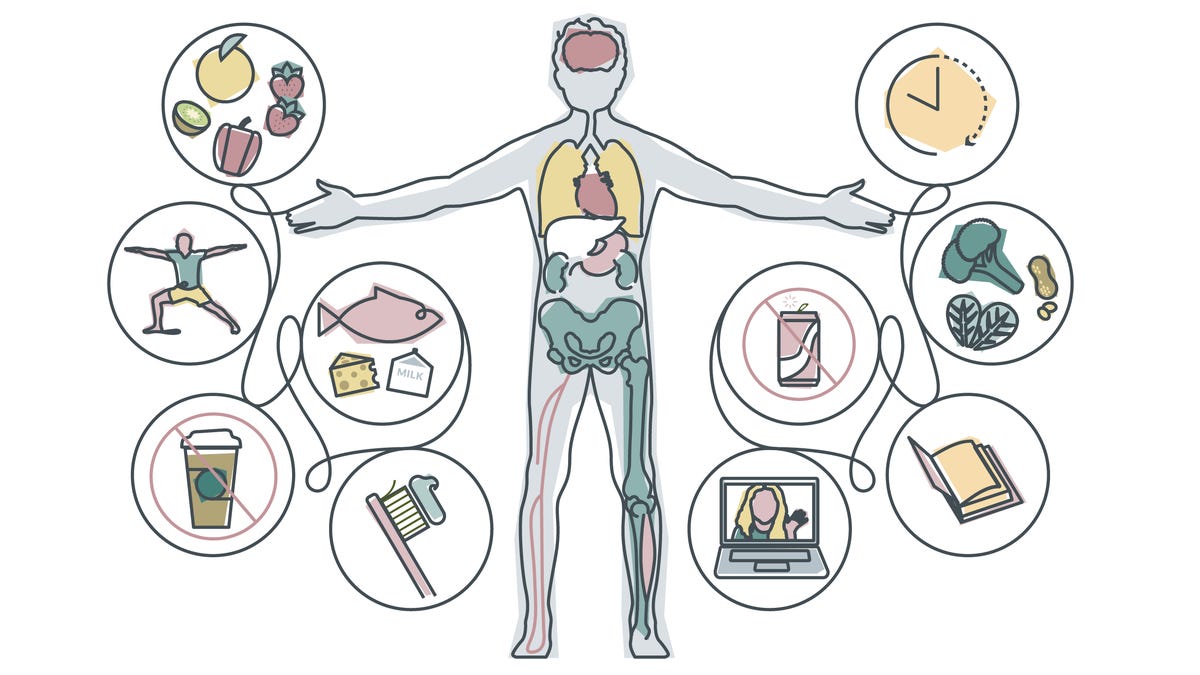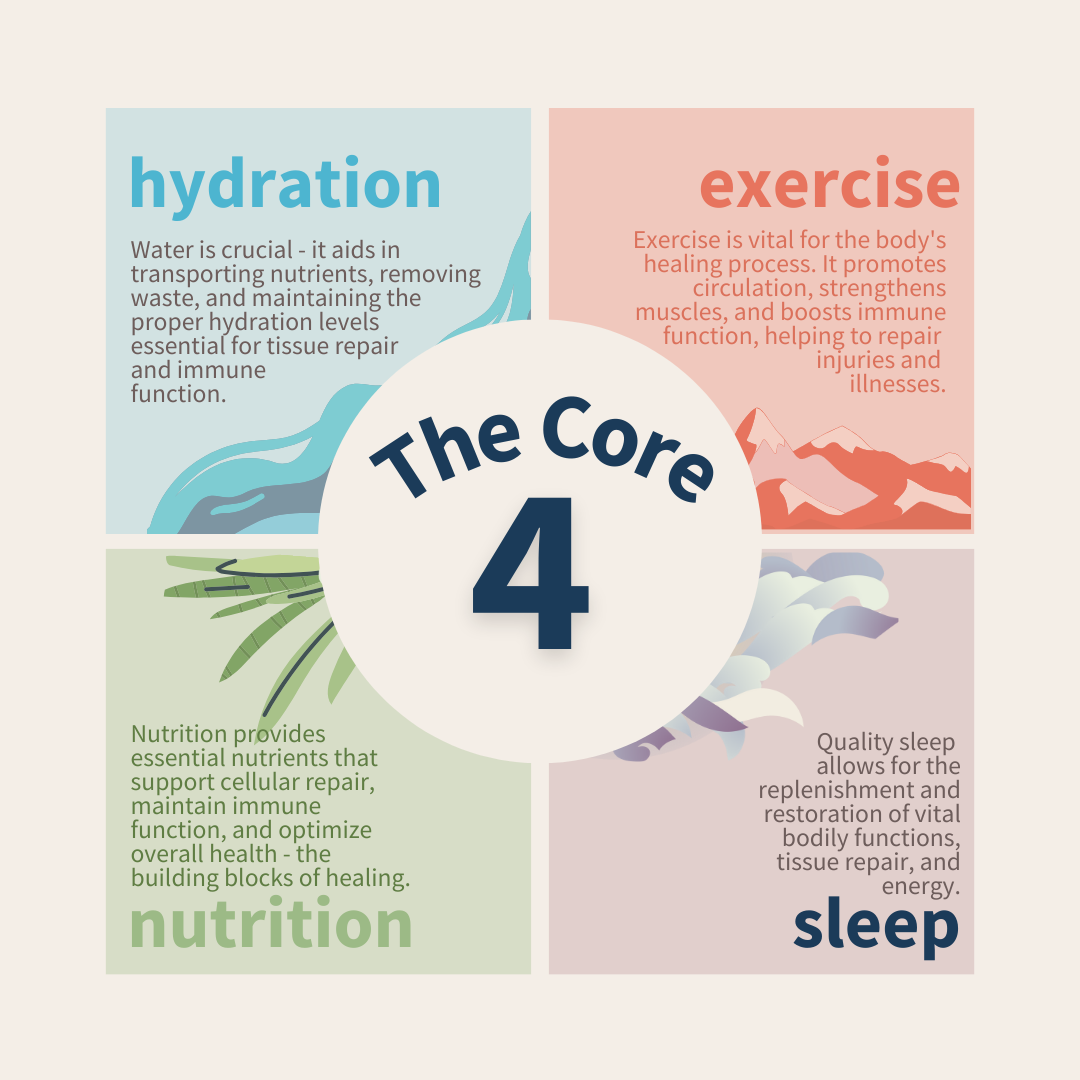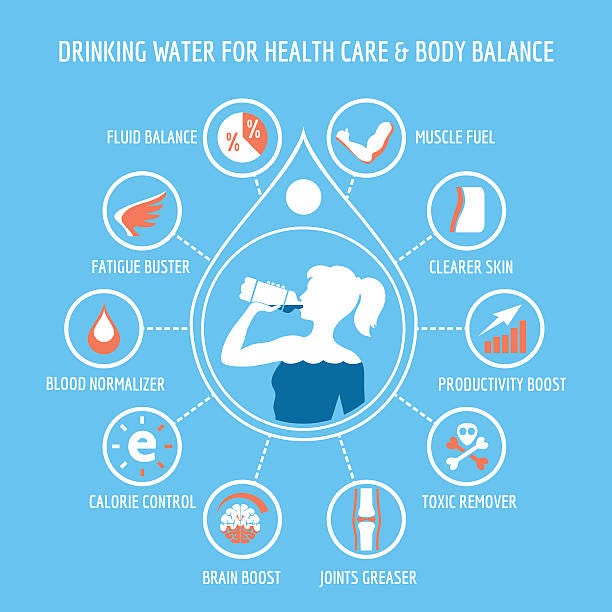How to feel better — for free.
Not clickbait. Not in the least sexy. Just the bare-bones truth.
Good morning, health heroes!
I’m sitting at what I call ‘mission control’ — my big L-shaped desk with 5 computer screens and 3 separate computers. I’m a tad overwhelmed by the sheer amount of writing and developmental editing I must do on my book manuscript in such a short timeframe (one month from today).
If you didn’t know, I’m writing a book! It will be released in early 2025.🤞🏼 It’s all about how to become your own health hero, able to handle any health issue that comes your way using a new, science-based approach. Thank heavens to a great editor as I’ve never written a book this complicated before. It’s harder than I thought.
This week’s newsletter is a nice relief, like a quick cool dip, into basic core health concepts. It also might be an exercise in procrastination from book writing (hehe).
Last week we took a deep dive into the hottest health topic, Ozempic, which 1 in 8 people have already tried. If you haven’t, you know someone who has, guaranteed. It’s a snapshot of the health hero approach in action —you can check it out here — and I really encourage you to read it if you’re at all considering trying GLP-1s.
Today, we’re looking at the foundations of health—the things that can enhance your health, no matter your health status. And, starting now, you can change your health without spending an extra dime.
You likely already know these foundational concepts are good for your health… but you probably still don’t do them all.
If that sounds like you, you’re wasting valuable time by not filling up your health battery if you don’t do them starting today. If you are doing these things, then cheers to you, health hero! Don’t stop.
(BTW: If you’re like me and want to stay healthy and out of the healthcare system as long as possible, I encourage you to listen to my latest interview on Dr. Natalie Marr’s podcast.)
Charge Your Health Battery by Addressing the Core Four
Think of your health battery as a health reserve.
The healthier you are, the more reserve you have - the faster and more efficiently your body can take the assaults on your health and recover from illness and injury. If you have a low health battery, you’re prone to getting sick or taking longer to recover.
Note: If you have an illness, temporary or chronic, your health battery will be running low because your physiological systems are working hard to help you recover.
If that’s you, I suggest focusing on the Core 4 but check with your doctor to make sure that exercise is warranted or needs to be modified to your condition. Always use common sense and do your research before making your health decisions and ask the question, “Is this right for me?” Never blindly follow advice. Put it to the test — including what I tell you! (Actually, I love it when people come back to me with research and refute a point I make. That tells me I’m a good teacher and doing my job!)
Although there are many, many ways to improve your health, it comes down to the basics that matter, and some might consider them… unglamorous.
As Dr. Jen Gunter puts it, they fall into a category that feels ‘eternally unsexy’ or unappealing, boring, and certainly not the latest and greatest.
But they are foundational. The foundation of a skyscraper isn’t what people notice, but without it, that tower would not stand. The foundation and building blocks are seldom credited for making the building great. The same applies to your health and the foundations that are necessary to keep you well. Without them, you begin to get sick.
So, let’s get back to the basics and relearn what makes the foundation of our health strong.
The Core 4 is the primary foundation of health—hydration, exercise, nutrition, and sleep. It could be argued that there are more—stress management and spiritual health, for example—and I cannot argue that they are what keeps us fulfilled in life.
But going back to Maslow’s hierarchy of needs, I’m looking at this from a physiological perspective. If you do not have these four elements, you die - period. Your health will tumble like a skyscraper without its foundation.
So, let’s look at the benefits of each and see why they matter so much to your physiological system.
This is not a comprehensive lesson but a reminder to keep these four as a priority while managing your health.
💧 Hydration💧
Water is the universal solvent. What does that mean? It means that water can dissolve more substances than any other liquid. And what does that mean? Water transports valuable chemicals, minerals, and nutrients while shuttling away toxic elements that damage cells and it’s very efficient. But it can’t do this well if there’s not enough water - it creates a high concentration of yuck, which the kidneys must filter. And kidneys need water to filter blood efficiently.
In one day, the kidneys filter about 1,800 liters of blood and excrete the filtered waste through urine about 300 times. That means that if you’re not hydrated, all physiological systems suffer, down to every cell. You create a toxic environment for your cells! Yikes.
More critical functions of water include:
Temperature regulation. Water is the body’s natural cooling system.
Digestion and nutrient absorption. Water helps your body break down, process food, and absorb nutrients.
Joint lubrication. This is an underrated one — good hydration helps to reduce friction between bones, aids joint movement, and allows for more flexibility. (Hint: If your joints hurt, try drinking more water and see if it helps.)
Circulation. Blood is mainly water and is responsible for carrying oxygen and nutrients to cells and removing waste.
Electrolyte balance. Water keeps nerve function, muscle contraction, and fluid balance in check.
Skin health. Our biggest organ needs water to maintain elasticity for protection (including protection from viruses) and good overall functioning. Plus, it makes our skin look better, so we feel better (which improves our mood).
To do: Make 75% of your liquid intake water; the rest can come from other liquids.
Don’t like water? I don’t mean to be harsh, but you gotta drink it anyway.
Can’t remember to drink water? Make it more accessible. Have a water bottle available at all times—at your desk and in your car. You’ll be more likely to drink it if it’s just… there.
Tip: My favorite trick for getting enough water daily is to drink a glass after you go to the bathroom. Pee, drink a glass of water, and you’ll be fine.
Sweating a lot? Drink more water. Exercise in the heat? Drink some more. Pregnant? No worries. You’ll be peeing a lot, so you’ll be drinking more to compensate for the baby if you follow the drink after going to the bathroom trick.
You’ll quickly notice that increasing your water intake is not that complicated.
🫀 Exercise 🫀
I’m an exercise physiologist and personal trainer, so I gotta talk about this — it’s my jam! You may think I’m talking about hours in the gym doing cardio, strength training, and daily yoga, but I’m not. Amazingly, just walking 8,000 steps a day can significantly reduce the risk of premature death. It’s also good for your heart, lungs, weight, mental health, immune system, sleep, and so much more.
I’ve studied what we humans need when it comes to exercise to thrive based on science and 30+ years of experience as a personal trainer, bodybuilder, runner, cyclist, and fitness enthusiast. Our body needs exercise for so many reasons! So here’s what you need to do, how, and why in a nutshell.
Get your heart pumping harder than being at rest, please. Cardiovascular exercise is what your heart and lungs need to stay strong and improve your circulation. It pushes fluid through the body, and oxygen - which all cells need.
After all, you’re now well hydrated, so transport those nutrients and O2 and shuttle CO2 and metabolic by-products away!
How hard should I do cardiovascular exercise? If you walk, push the intensity up so you’re gasping while talking. Do more if and when you can. Do different cardio exercises for variety to challenge different muscles and also the brain.
How often should I work my heart? Do it daily, if possible.
Don’t like exercise? Too bad — your body does. If you like your body, you gotta ‘just do it.’
Lift something heavy regularly. Build muscle and bone by lifting heavy things. Use all your muscles. Don’t hurt your back or go overboard - tax your body a bit by pushing the muscles to fatigue.
Look up a good strength training program online that works with your current accommodations. (I can put a program together for you, too, just message me. It won’t even cost much! I wish I could offer it up for free, but a girl’s gotta eat.)
How much should I lift? General rule, lift as much as you can to get 8-12 repetitions in a set. Start with one set, then as you get stronger, do two.
How often should I lift? Two to three times a week, most weeks.
I don’t like to lift weights. Get a personal trainer - we’re awesome! We sometimes even come to you - no gym needed. Or go find free online videos to follow, there are a plethora of quality virtual trainers online these days. Half the battle is just getting motivated to start.
If nothing else, just move a little more than usual.
Take a hot girl walk. Okay, making walking a little sexier, my daughter just introduced me to this, which turns out to actually be a great way to incorporate movement, self-care, and hydration — and yeah, I suppose you can Instagram your #hotgirlwalk if you really want to.
🥗 Nutrition 🥗
Alright, ready for my big, unglamorous takeaway for the Nutrition core?
Eat your vegetables. Don’t eat processed foods if you can avoid them - just eat what comes straight from the earth. Food is medicine. The nutrients food contains are the fuel for your cells to thrive, divide, and heal.
Your energy improves because your cells are working more efficiently. Your immune system strengthens, as does your mental health. Healthy, natural, wholesome foods (especially foods and meals made from scratch) strengthen your microbiome. I’ll dive into the topic of microbiomes coming from a health navigator perspective very soon — I can’t wait, so stay tuned.
What should I eat? As Michael Pollan once said, ‘Eat food. Not too much. Mostly plants.’ There are three big variables to adjust: food quality, quantity, and timing. Choose high food quality, moderate food quantity, and time your food so your blood sugar stays even throughout the day. Or you can try intermittent fasting if your blood sugar can tolerate it. (I’ll write something about intermittent fasting soon — this is another big hot topic that I get a lot of questions about from clients.)
Don’t like to cook? Many services provide healthy foods delivered to your home—some are easy-cooking, and some are reheating. Do some investigating! Options do exist.
But … healthy food is expensive! It can feel that way, but here’s another unsexy truth. Cheap, highly nutritious recipes are all over the internet, and wholesome, affordable, nutrient-dense ingredients like beans, broccoli, cabbage, potatoes, chicken thighs, oatmeal, apples, brown rice are all great for a low budget. I’ll page my daughter, a nutrition-savvy chef, to write a post about this if you guys are interested!
Nutrition is one of the harder aspects of Core 4 since it depends on many psychological and practical factors. It’s also very personal and a touchy subject. How you feel about food and your access to it can be barriers or aids to improving your health. I address this in my book, so stay tuned!
🌙 Sleep 🌙
Focus on getting both high-quality and quantity sleep. I recognize that this is easier said than done. However, research shows how important sleep is for our physical health.
Our bodies repair when we sleep, our minds process the enormous amount of information we encounter during the day while we sleep, and our immune systems work more efficiently when we sleep, thus decreasing the chance of chronic illness and inflammation. A recent international study found that individuals who slept less than 6-8 hours of sleep a night had a 41% higher risk of cancer. Getting good sleep is no joke.
We are also less prone to being overweight when we have good sleep. Ironically, when people are overweight they have more problems sleeping. I can’t omit the fact that we feel emotionally better when we sleep, too.
But no matter what I try, I can’t get good sleep. Read the book Why We Sleep by Matthew Walker or listen to this great podcast with Dr. Chris Winter about sleep on Catalyst 360 to get you started, or their other amazing podcast on sleep with Dr. Colleen Carney. Then, do more research based on your sleep situational experience and start implementing a sleep strategy. Make sleep a priority - I can’t say this enough.
TL;DR
So there you have it, four simple (but not always easy) health pillars: hydration, exercise, nutrition, and sleep.
They might seem like no-brainers, but they are essential to our health foundation and healing journey.
If you’re not doing all four, get started and fill up that health battery!
P.S.:We all slip into neglecting these now and then. Try to stay on track with the Core 4 more often than not.
Confession time — I went camping last weekend and ate my fair share of processed foods. And it was delicious! But now that I’m back, I’m on track. That’s what I call balanced living.
Where do you tend to struggle the most?
If you don’t know where to start on your health journey, there have some great resources for you in our free Where Does It Hurt? Guide, which can help you better understand, navigate and explain your symptoms to a healthcare provider, or even narrow down the type of research you want to do on your own.
Additionally, we offer health coaching, which is a great place to start if you could use a hand. Check it out here.
Thanks for tuning in — have a great week! I’m always around in the comments and messages, so don’t hesitate to reach out. (I could use a break every now and then from the writing frenzy, actually!)
In good health,
Dr. Alice
A little more about Dr. Alice Burron and The Health Navigator Group:
You can find more about The Health Navigator Group at our website: www.thehealthnavigator.org
On Instagram: @the.health.navigator
And learn more about Dr. Alice Burron at her website: draliceburron.com
Or via her personal Instagram: @dr_burron
You can even connect with her on LinkedIn, if you want to be professional about it. 👓
And if you’re not subscribed to our Substack, what are ya doing? It’s free, and packed full of useful tools to help you on your journey to better, faster healing.







